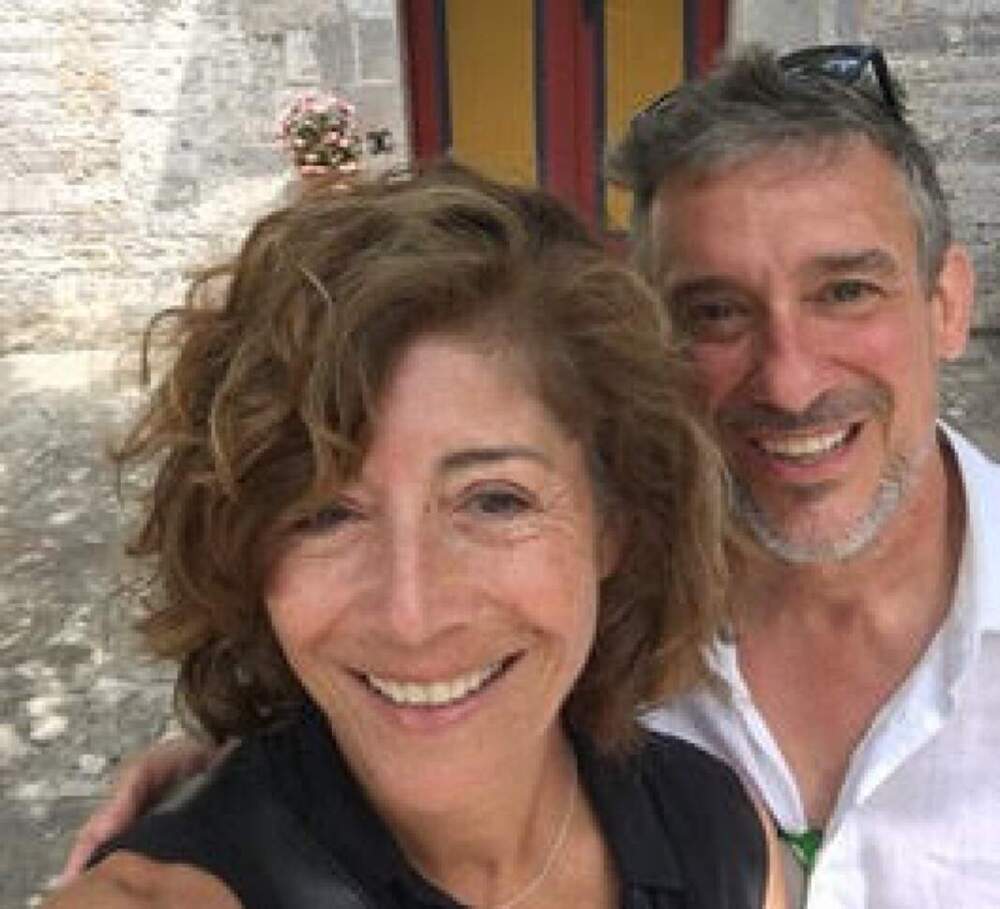Advertisement
Commentary
I found love after divorce. But I could only change so much about myself

I've been with my husband for 10 years, married for five, and I still have no endearments for him. I call him "Matt" — which is, after all, his name. But it can sound like a stern bark if that's all you say: Matt, just Matt. Never "dear" or "honey" or anything else. It's not because I don't love the man. I love him dearly — I just can’t bring myself to call him "dear."
The problem is that, when my first marriage ended after 30 years, I decided I wanted to be a person who called my beloved "darling." In my very long relationship, my then-husband’s endearments for me had drawn from the standard vocabulary, with “Sweetie” being the main term of affection, but had mostly emerged from his silly songs. Those song-derived names for me eventually lost their once goofy context and became, in retrospect, unflattering words to answer to. And yet I did answer to them, for as long as the marriage held the love that had inspired them.
In my new relationship with Matt, keen to begin my new life with habits I chose, I decided that “darling” was going to be my word. It was glamorous; it was coolly affectionate; it was the endearment of a full-fledged adult, partnering in her 50s, not the 24-year-old kid I’d been when I married the first time.
“Darling” matched the other emblem of my new life: the long, navy-blue dressing gown I bought on the day of my divorce court date, shopping with my best friend after a drink to mark the legal occasion. We went from the Oak Room in Copley Square to H&M on Newbury Street, where I spotted the dark and satiny garment and instantly decided that I wanted to be a person who wore that sort of thing. I had already met Matt, months after my first marriage ended but before the legal finish, and we had quickly discovered that we were it for each other. So, he would be my “darling," and I would reach a languorous arm out to him, trailing my dressing-gown sleeve, and I would inhabit my new self.
“Begin as you mean to go on,” I kept telling myself — and threw a housewarming party with that motto printed on the invitation.
The trouble was that the new self I envisioned seemed to have escaped from a 1940s Katharine Hepburn movie. And, with a golden retriever to walk at the end of the night, I realized that getting cozy in satin proved impractical. On top of that, my first winter in Cambridge was our Snowmaggedon, when Gore-Tex or wool was the fashion of the day. The dressing gown remained in my closet, where it still hangs, mostly unworn.
When I divorced, I had to make certain big decisions. Where would I live? What kind of life would I live? I bought a house; I moved out of the suburb where I’d raised my two kids; I delightedly looked forward to having friends over more, to going out more, to traveling more.
“Begin as you mean to go on,” I kept telling myself — and threw a housewarming party with that motto printed on the invitation. And yet, the self that I carried with me into this new life never really changed from the person I was at heart.
I found that reassuring. Since I'd married when I was very young, I changed and grew over the course of our long relationship. I left academia and found my footing as a novelist. I dove more deeply into sports and gained confidence as an athlete. But I also adopted a distorted version of myself. Married at the start of a Ph.D. program, I focused for many years on the seriousness of my work, at the expense of youthful fun. I'd always been an extrovert. Yet in my marriage, I came to believe the narrative that my then-husband was the social one and I was not.
As that marriage came to an end, I could see myself more clearly. Several years ago, a good friend nearly fell off her chair in laughter when I said to her, “I think maybe I’m an extrovert?” My personality type was so obvious to her, in a way that I was still beginning to understand.
I am likely never going to be the person who swans around in a dressing gown calling her husband "darling" ...
"You take yourself with you wherever you go," Matt and I like to say when we see that people remain unchanged in different groups and contexts. Yes, we code-switch, and yes, we develop ourselves over time. But I think our core self endures. The beauty of entering into a relationship as an older person is that, by the time you've reached your 50s, you have a clearer sense of who you are. In some important ways, it took a divorce to abruptly change the lens and let me see myself in full once more.
When you form a new relationship as an older person, you also have the chance to begin as you mean to go on, to choose how you’re going to live and how you’re going to present yourself. I had my zany (to use a 1940s word) idea to live a Noel Coward kind of life. But that was never really me, and Matt knew that. We both know it. I am likely never going to be the person who swans around in a dressing gown calling her husband "darling" — which is why when I do try to say it, we both laugh. No matter how much I might have wanted to form a new idea of myself in this new life, there is only so much change I can bring to my core self.
Even now that I no longer have a dog to walk (he died after a full life), I hardly ever wear the dressing gown. And try as I might, I can never quite muster the glamorous attitude to say “darling.” The dressing gown and the “darling” have a different use: They are reminders of the possibility of change, symbols of the conscious choices I was able to make and that I can keep on making, if I need to.
I take myself with me wherever I go. And wherever I go, I am the woman who just calls my darling, “Matt."
